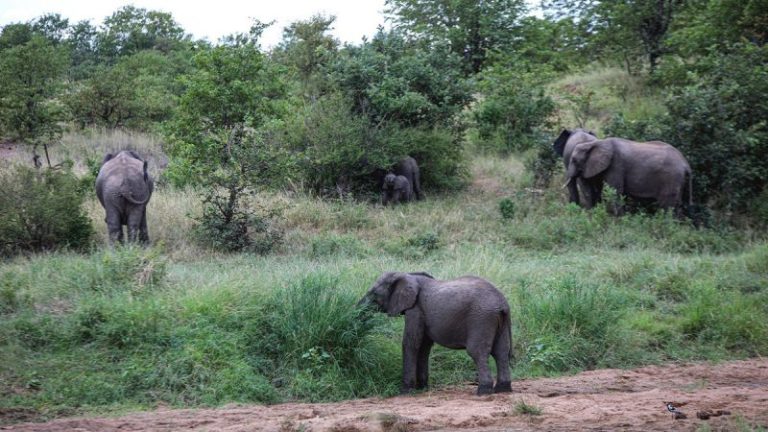The Biden administration strengthened protections for African elephants, but stopped short of issuing a total ban on imports of hunting trophies and live animals, to the disappointment of wildlife activists.
In an announcement late last week, the U.S. Fish and Wildlife Service finalized restrictions on elephants imported to the U.S. under the Endangered Species Act, which it said would aid the long-term conservation and survival of elephants in the wild. Prominent wildlife activist organizations have called for the agency to go further and ban such imports altogether.
‘The Service values collaborative conservation of wildlife all around the world and is committed to improving implementation of international conservation law,’ FWS Director Martha Williams said. ‘Our actions today will help support range countries’ efforts to manage and conserve African elephant populations and will further protect African elephants that are imported to the United States.’
She added that FWS would continue to work with African nations to ensure the sustainable management of elephant populations.
Under the finalized regulations, live African elephants, African elephant sport hunting trophies (such as tusks, hides, feet and tails), and African elephant parts and products may be imported into the U.S., but only from countries that have laws in place to ensure conservation of the species. The regulations also require imports to go to American facilities that are able to properly care for them.
The rulemaking further highlights the administration’s view that, for hunting to achieve its conservation potential, it must be ‘well-regulated’ and include accountability measures, FWS said.
Still, advocates expressed disappointment at FWS’ decision to stop short of a full ban on imports and vowed to keep pushing for such a policy at the federal level.
‘I’m truly crushed this rule doesn’t ban trade in elephant hunting trophies to the United States, and it doesn’t even require stable elephant populations to allow trophy imports,’ said Tanya Sanerib, international legal director at the Center for Biological Diversity. ‘These magnificent animals are globally cherished but under threat, and it’s high time we stop letting wealthy trophy hunters turn them into decor.’
Sanerib said the restrictions finalized by the administration are ‘mouse-sized’ and treat elephants like commodities.
Jeff Flocken, the president of Humane Society International, applauded the new restrictions, but similarly called for even stronger measures.
‘We will continue to fight for a full ban on the trade in African elephant hunting trophies, and we hope this sets a precedent that can be applied to other countries and to other imperiled species, like lions, giraffes and leopards,’ he said.
The regulations, which will take effect on May 1, 2024, were first proposed in November 2022. After they were proposed, FWS received thousands of comments from stakeholders, a large majority of whom called for increased conservation of African elephants, according to the agency.
Groups like the Performing Animal Welfare Society, Friends of Animals and the Animal Welfare Institute used their comments to call for the Biden administration to use the rulemaking to issue a complete ban on elephant imports.
‘Friends of Animals urges FWS to prohibit the import of live African elephants. There is no reason to continue to allow these intelligent and social creatures to suffer in captivity,’ Stephen Hernick, a senior attorney at the Wildlife Law Program for Friends of Animals, wrote in the group’s comments last year.

